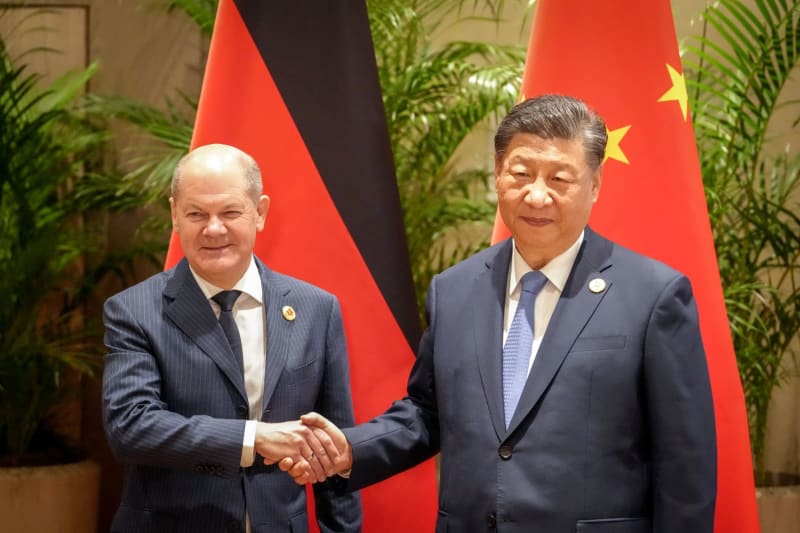During a recent bilateral meeting in Rio de Janeiro at the G20 summit, German Chancellor Olaf Scholz and Chinese President Xi Jinping discussed the critical importance of fostering world peace and security. While Scholz refrained from directly addressing Russia’s ongoing invasion of Ukraine, he emphasized the principle that no nation should live in fear of its neighbor, underlining the necessity for collective effort in achieving global peace. This comment, however, could be interpreted in light of multiple geopolitical tensions, including the strained relationship between China and Taiwan, which Beijing considers a breakaway province.
President Xi responded to Scholz’s remarks by articulating that the world is confronting a pivotal moment regarding global development, characterized by mounting conflicts and disagreements. He underscored that maintaining security and peace presents a test for all nations, indicating China’s intent to collaborate closely with Germany to strengthen their comprehensive strategic partnership. Xi’s acknowledgment of the complexities in global politics reflects the delicate balance that powers like China and Germany must navigate in fostering international stability amid existing tensions.
In the context of escalating geopolitical issues, Scholz also raised concerns about China’s potential arms deliveries to Russia, reinforcing Germany’s stance against any nation supplying lethal weapons to Russia. Highlighting the importance of this topic, Scholz indicated that such discussions will continue to be crucial in his dialogues with Xi. This position is particularly relevant given increasing worries among Western nations regarding collaboration between China and Russia, especially as the latter continues its aggressive military actions in Ukraine.
Furthermore, German Foreign Minister Annalena Baerbock has expressed serious apprehensions about China’s involvement in supporting Russia’s military efforts, particularly in the form of drone supplies. Baerbock’s remarks indicate a toughening stance from Germany, as she has threatened to pursue sanctions against China should evidence of arms deliveries be substantiated. This potential for sanctions highlights the broader implications of China’s actions on its relationships with Western nations and its commitment to global peace.
The stakes in these discussions between Xi and Scholz are high, as both leaders recognize the necessity of dialogue amidst rising tensions across various fronts, including the ongoing war in Ukraine and the contentious situation in the Taiwan Strait. As both countries work toward reinforcing their strategic partnership, the impact of China’s military support for Russia looms large in the backdrop of their talks. The outcomes of these conversations could significantly shape the geopolitical landscape, particularly in the context of Europe’s security frameworks and U.S.-China relations.
As the G20 summit progresses, the emphasis on multilateral dialogue and cooperation in addressing conflicts persists. With leaders like Scholz and Xi at the forefront, the need to confront pressing global challenges through mutual understanding and collaboration becomes paramount. Ultimately, how both nations navigate their respective roles in the international arena will significantly influence global stability and the overarching pursuit of peace in an increasingly complex geopolitical environment.

